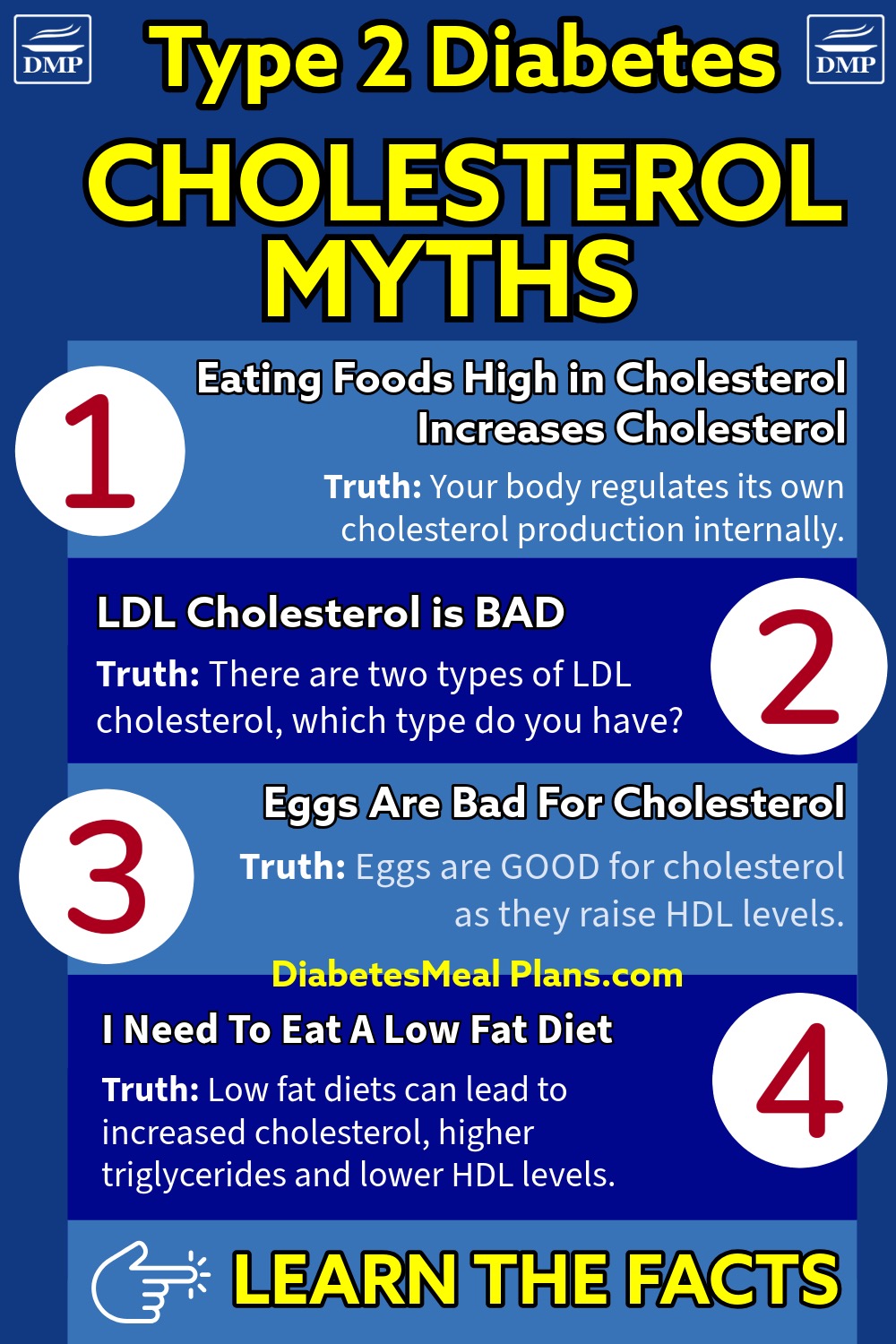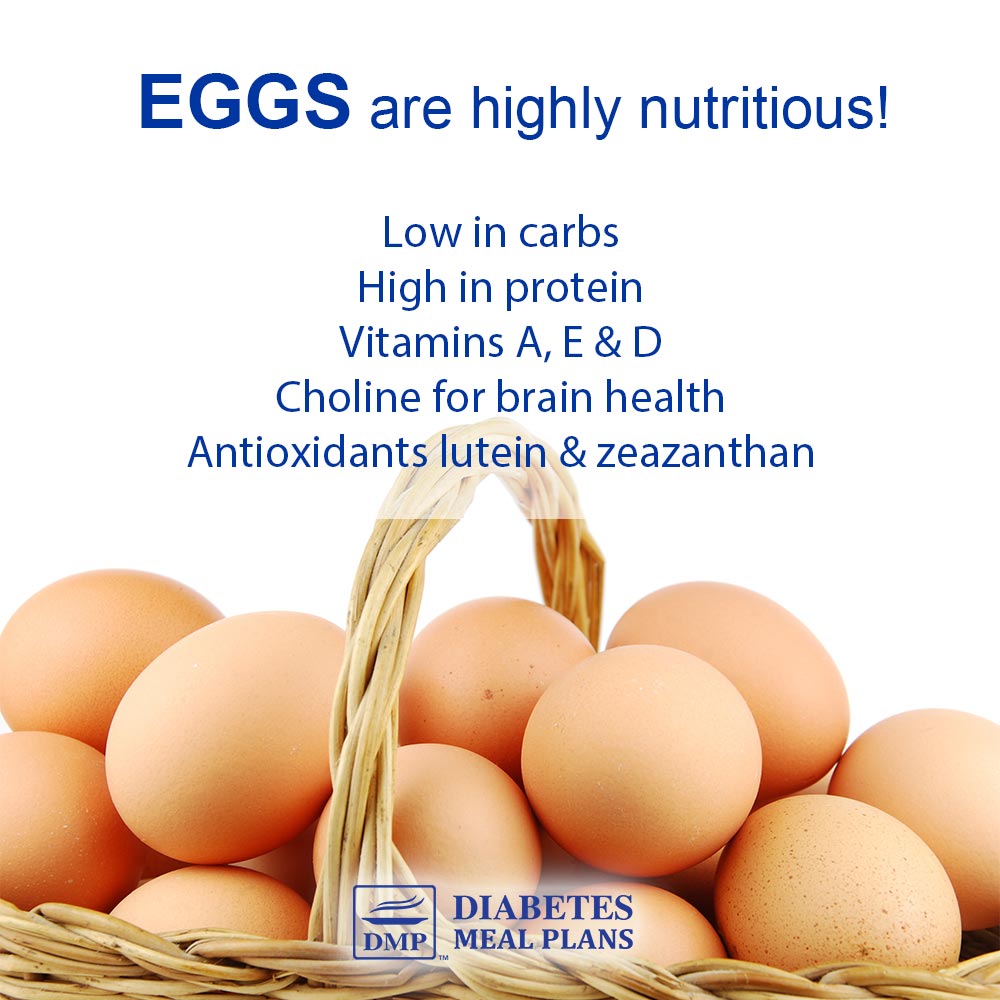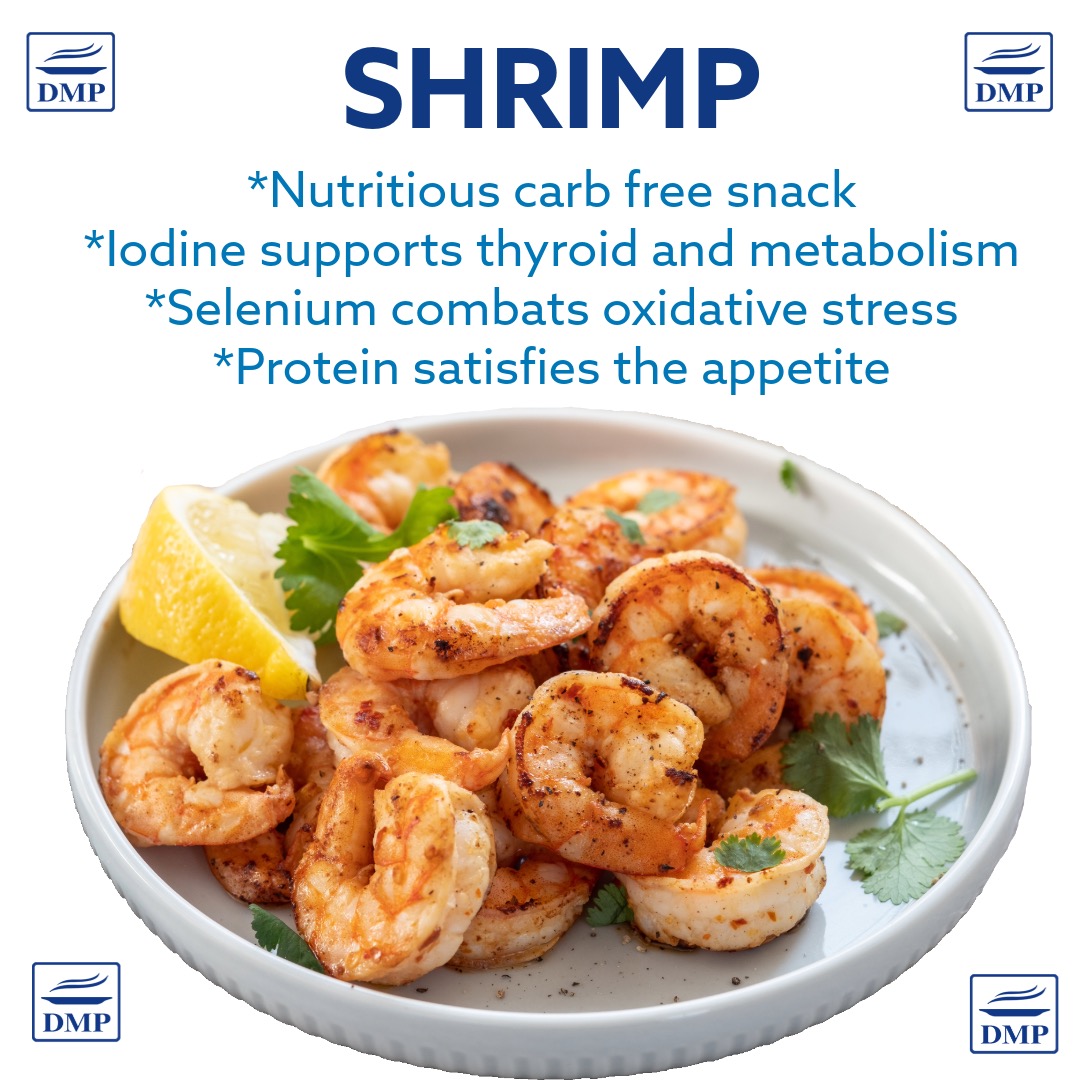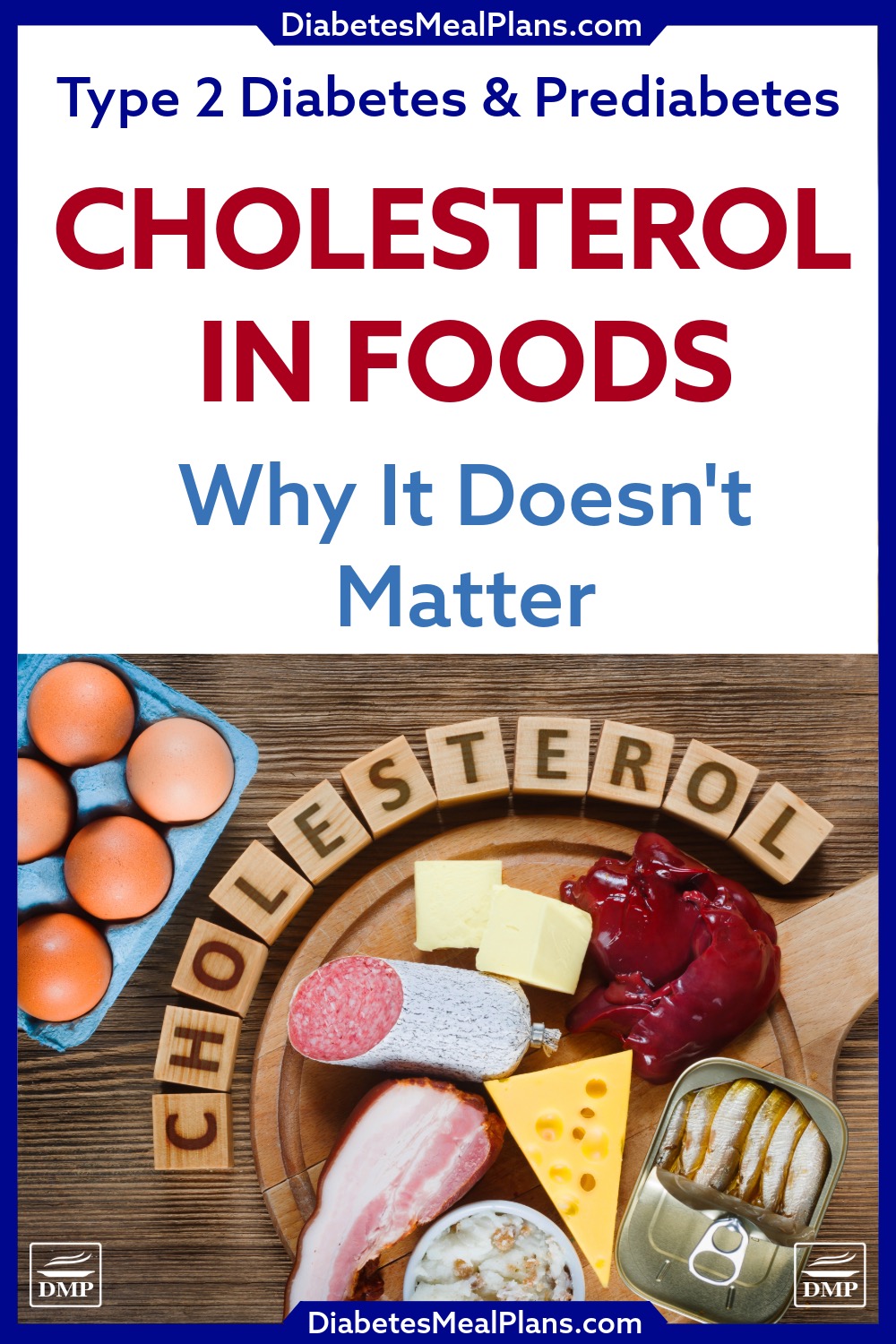Table of Contents[Hide][Show]
If you’ve been told to avoid foods high in cholesterol, like eggs (especially the yolks), shrimp and liver, you’re not alone.
For decades, dietary cholesterol was thought to directly contribute to high blood cholesterol levels, increasing the risk of heart disease. But recent research has turned this thinking on its head.
Here, you’ll learn why eating foods high in cholesterol might not be the problem you’ve been led to believe.
In fact, understanding how cholesterol works can empower you to make informed choices that improve your overall health, especially when managing type 2 diabetes or prediabetes.
What is Cholesterol?
Cholesterol is a waxy, fat-like substance that’s essential for your body. It plays critical roles in:
- Building cell membranes
- Producing hormones like estrogen and testosterone
- Making vitamin D and bile acids for fat digestion
Your liver produces most of the cholesterol in your body—about 80%—while the remaining 20% comes from food.
This means your dietary intake has limited impact on your overall cholesterol levels.
Does Eating Cholesterol Raise Your Blood Cholesterol?
The idea that eating cholesterol-rich foods leads to high cholesterol levels in your blood has been largely debunked.
Research now shows that, for most people, dietary cholesterol has minimal impact on blood cholesterol levels. Instead, the body compensates: when you eat more cholesterol, your liver produces less.
In addition, research has now shown that there is no significant link between dietary cholesterol and heart disease.
Subsequently, in 2015, the dietary guidelines for limiting cholesterol to only 300 mg per day were removed—cholesterol in foods is NOT a cause for concern.
For people with type 2 diabetes or prediabetes, blood sugar control and reducing inflammation are far more critical factors for heart health than simply avoiding high-cholesterol foods.

The Real Concern: LDL, HDL, and Triglycerides
When it comes to cholesterol, what really matters is how it’s transported in your blood. Cholesterol travels through your bloodstream in particles called lipoproteins.
The two main types you’ve likely heard of are:
- Low-Density Lipoprotein (LDL): Often called “bad cholesterol,” it carries cholesterol to tissues. High levels of LDL can contribute to plaque buildup in arteries, increasing heart disease risk. BUT, only if they are small dense LDL particles. If you have large bouyant LDL particles, they DO NOT cause heart disease. So you see, not all LDL is “bad.”
- High-Density Lipoprotein (HDL): Known as “good cholesterol,” HDL helps remove cholesterol from the bloodstream and carries it back to the liver for excretion.
More important than your total cholesterol level is your LDL to HDL ratio and the presence of another marker: triglycerides.
High triglycerides combined with low HDL levels often indicate insulin resistance, which is the most common cause of type 2 diabetes and prediabetes.
Why Cholesterol-Rich Foods Aren’t the Villain
Several nutrient-dense foods high in cholesterol provide essential vitamins, minerals and healthy fats that support your overall health.
Here’s why these foods deserve a place in your diet:
Eggs
Eggs are among the most nutrient-dense foods on the planet!
A single egg contains 6 grams of high-quality protein, along with vitamin B12, choline (important for brain health), and antioxidants like lutein and zeaxanthin, which support eye health.
Studies have shown that eating eggs has no adverse effect on cholesterol levels or heart health in people with prediabetes or type 2 diabetes. In fact, eating eggs improves vitamin D and HDL “good” cholesterol levels.

Shrimp
Shrimp is low in calories, high in protein, and packed with iodine—a mineral essential for thyroid health.
While it’s true that shrimp is high in cholesterol, it’s also high in selenium to combat oxidative stress, making it a heart-healthy food.

Liver
Liver is a nutritional powerhouse. It’s rich in vitamin A, iron, and B vitamins, including B12 and folate.
While liver is high in cholesterol, it provides nutrients that support energy production, red blood cell formation and immune function.
Foods High in Cholesterol and Their Nutritional Benefits
Here is a list of common high-cholesterol foods and their cholesterol content per serving, along with why they’re still nutritious choices:
| Food | Cholesterol Content (per serving) | Key Nutritional Benefits |
|---|---|---|
| Eggs (1 large) | 186 mg | Rich in choline, vitamin D, and antioxidants lutein and zeaxanthin. |
| Shrimp (3 oz) | 161 mg | High in protein, selenium, and iodine for thyroid health. |
| Liver (3 oz) | 330 mg | Nutrient-dense, providing vitamin A, iron, and B12. |
| Cheese (1 oz) | 30 mg | Source of calcium, protein, and fat-soluble vitamins. |
| Butter (1 tbsp) | 31 mg | Contains short-chain fatty acids, supportive of gut health. |
| Duck Meat (3 oz) | 76 mg | Rich in protein, iron, and B vitamins. |
| Sardines (3 oz) | 121 mg | High in omega-3 fatty acids, calcium, and vitamin D. |
| Full-Fat Yogurt (1 cup) | 20 mg | Contains probiotics, calcium, and protein. |

What Really Impacts Your Cholesterol Levels?
If dietary cholesterol isn’t the main driver of high blood cholesterol, what is?
For most people, cholesterol imbalances stem from:
1. Excess Sugar and Refined Carbohydrates
High sugar and refined carbohydrate intake can lead to insulin resistance, a key driver of elevated triglycerides and low HDL cholesterol.
Cutting back on processed foods and sugary drinks can have a significant positive impact.
2. Chronic Inflammation
Inflammation in your blood vessels promotes the oxidation of LDL cholesterol, which is more harmful than LDL itself.
Anti-inflammatory foods like leafy greens, fatty fish and nuts can help.
3. Lack of Fiber
Fiber, especially soluble fiber found in foods like flaxseeds and avocados, can bind to cholesterol in the digestive tract, reducing its absorption.
4. Unhealthy Fats
Trans fats and excessive omega-6 fatty acids (found in processed foods and vegetable oils) can increase inflammation and cholesterol imbalances.
Focus on healthy fats like those in olive oil, avocados and fatty fish.
5. Insulin Resistance (a Major Contributor)
Insulin resistance is a significant factor in cholesterol imbalances, particularly in people with type 2 diabetes and prediabetes.
When your cells become less responsive to insulin, your body compensates by producing more insulin, leading to elevated insulin levels in your bloodstream.
This triggers increased production of very-low-density lipoprotein (VLDL), which is rich in triglycerides and contributes to higher levels of “bad” LDL cholesterol. Additionally, insulin resistance lowers “good” HDL cholesterol, further disrupting your lipid profile.
That’s why blood sugar levels are so important, getting blood sugar back to normal levels, as this lowers insulin and reduces insulin resistance.
Focusing on improving your blood sugar levels and improving insulin sensitivity will have the most profound positive impact on cholesterol levels and overall cardiovascular health.
The Bottom Line
The fear of eating foods high in cholesterol is outdated. For most people, these foods do not significantly impact blood cholesterol levels or heart disease risk.
If you’re managing type 2 diabetes or prediabetes, your focus should be on achieving normal blood sugar and A1c levels, reducing insulin resistance, inflammation, and triglycerides rather than cutting out nutrient-dense cholesterol-rich foods.
Cholesterol in foods is not a cause for any concern.
Incorporating eggs, shrimp, liver and other healthy cholesterol-rich foods into your diet can provide essential nutrients and support overall health.



Dorothy Clapp
I have type 2 diabetes I am on 15 units of insulin daily but my readings 2 hours after breakfast is anywhere between 8 and 12and after lunch the same unless I test 3 hours plus I can never get below 8 and to get that I have to walk for at least 1 hour I have been a diabetic for 20+ years I weigh 68kg donot eat sweets or drink soda See an endocronologist and all she suggests is further medication which does nothing I stopped taking tablets because they caused terrible heart burn and chronic constipation My last blood HBA1C was 8.4 any suggestions
Dr Jedha
Hi Dorothy, your readings after meals are too high so you need to work on your nutrition/diet to get these levels lower, which will also help you avoid or reduce medication. The same goes for your A1c, you want to work to get this below 7 and you can do this by changing your nutrition/diet. Often people think they are eating healthy, but it’s not food that supports better blood sugar levels. Start with our recommended food list. For more help and support, consider joining us as a member.